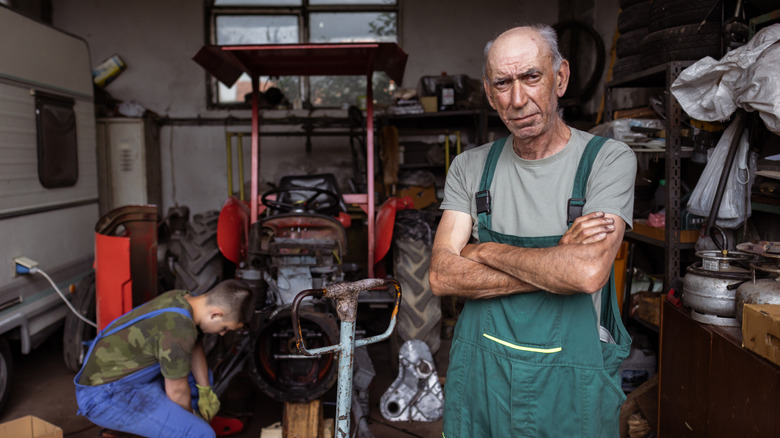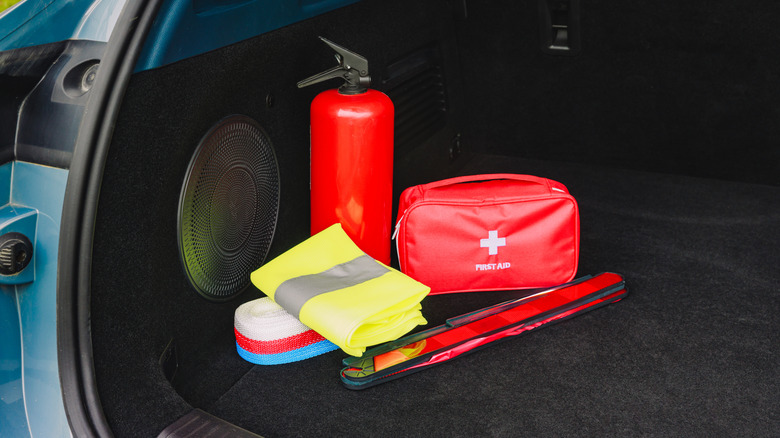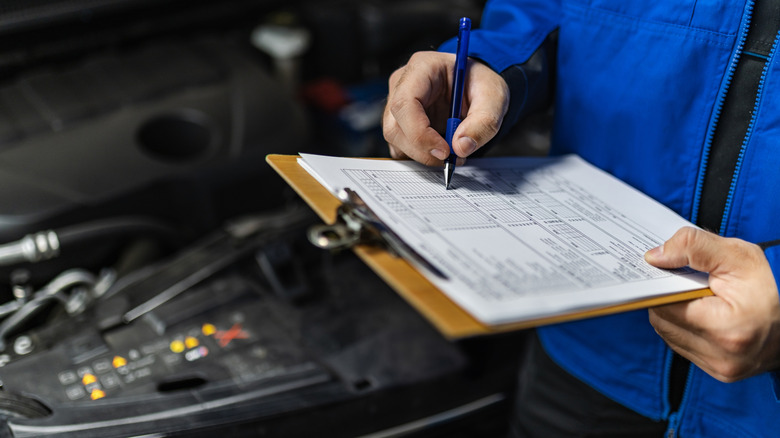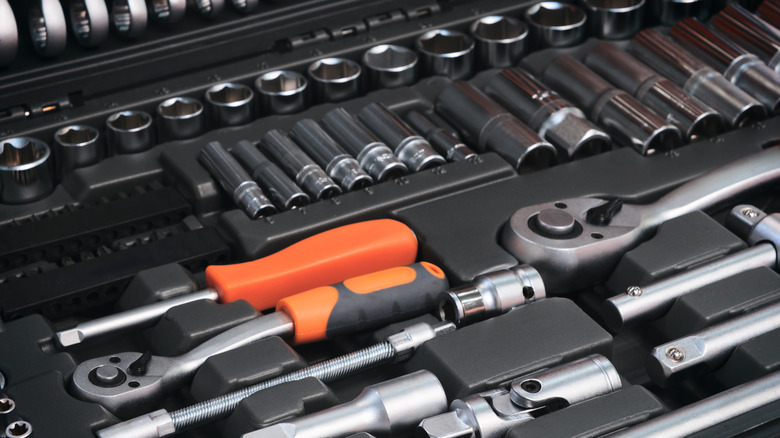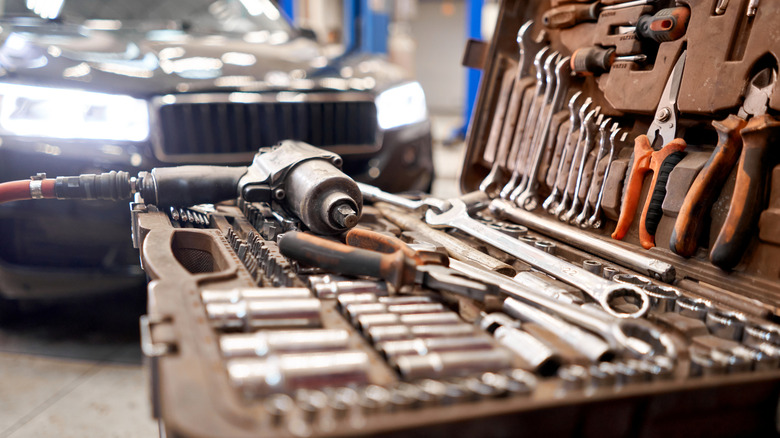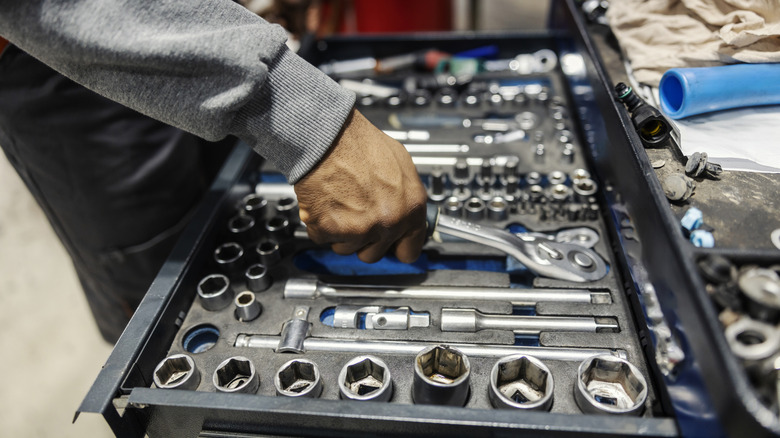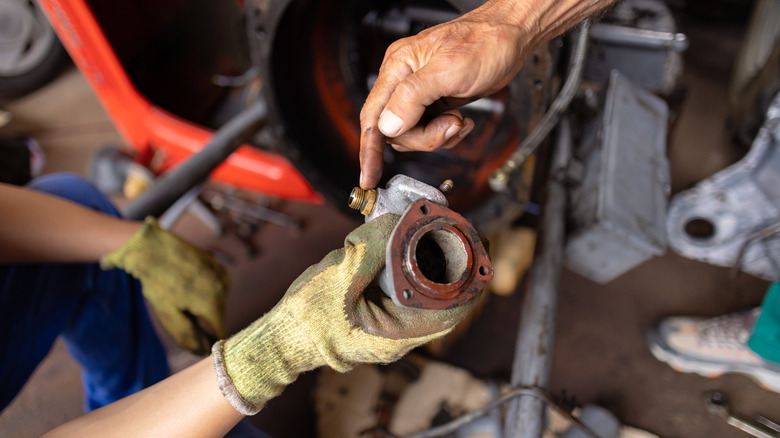5 'Grandfatherly' Car Maintenance & Tool Habits You Should Adopt
There's a lot of tech in the modern car world that helps us with maintenance. Scan tools can help you locate a problem (or at least the code for that problem) simply by plugging into a pre-installed port in your vehicle, and they could save you a lot of money. Modern tire-pressure monitor systems can tell you which tire is low and just how low it is (and in some cases, they can help you prepare your rig for off-road adventures).
Most modern cars have maintenance reminders, oil-life percentage readouts and fully integrated digital versions of their user manuals. But what if you want a bit of old-timey knowledge? What if you have a car that lacks modern tech, or you're just looking to establish maintenance habits for yourself or your family members that will help your vehicle stand the test of time? That's where you turn to grandpa's help – or at least 'grandfatherly' style tips. I grew up spending a lot of time under the hood of various cars, learning from both my parents about good maintenance and tool habits, and learning from their parents – both directly and by extension. I've also learned from many older mechanics who may not technically be grandparents, but whose advice was just as valuable. Hopefully, their tips will help you establish some healthy maintenance and tool-related habits of your own.
Keep an emergency kit in the car
Most grandfathers today grew up in a time before cell phones, so it was difficult or impossible to call for a tow truck when there was car trouble that caused a breakdown on the road. So what do you do if you get a flat tire, run out of gas, or otherwise get stranded and need to fix something on your car? Fix it yourself.
Keeping an emergency kit in my car is an easy way to stay prepared for the worst, and my grandfather always kept proper tools in his vehicles in case something went wrong. That meant items like battery jumper cables, a properly-inflated full-size spare tire, a tire iron or lug wrench to remove a flat tire, and a jack to prop up the car while you're working. Modern emergency kits have gone a bit more high-tech with items like a battery-powered jump box, on-board air compressors, and fix-a-flat cans, but the idea is the same. If you're prepared for an emergency with a simple set of tools, you can be back on the road a lot quicker than you'd think. Oh, and don't forget to practice using the tools like the jack and tire iron. If your first time removing a wheel from your car is while you're stranded in an unfamiliar location, that could significantly increase the stress level.
Keep your records
My method of tracking mileage, fuel economy, and maintenance is probably a bit more modern than my grandfather's was. He had manila folders with all the maintenance receipts that he kept with his vehicles. And while I still keep paper receipts and organize them, I also use a spreadsheet to track all the data, but the idea is the same. When you own a vehicle, whether it's a car or a motorcycle, it's a great idea to keep track of things like oil changes, brake pad replacements, and tire rotations. Keeping all this information in one place can help you plan ahead and properly time your next service.
This is especially useful when you plan to keep a vehicle for a long time, or if you're like me and you've got multiple vehicles, and tracking maintenance is a bit of a maze. What's more, while tracking the history of your car is good for you, it's also proof to future owners that the maintenance has been done regularly and on time. It's one of the easiest ways to increase your car's resale value. Finally, tracking records like this is especially helpful if you've got a project car you're working on long-term. You can input the cost of desired upgrades, track the cost of unexpected repairs, and help keep yourself on budget if you've got a financial limit for a specific vehicle.
Have a place for everything
Keeping organized tool boxes is the fastest way to finish a project. This is a habit that made its way through multiple generations of my family. Clean, organized toolboxes were a default part of life for both of my grandfathers, as it is for my father and even my mother. They knew where their tools were and, in some cases, even labeled certain drawers of their toolboxes to make searching easy. I've spent countless combined hours over the years looking for lost tools, but organizing things properly could save you a bit of that time. If you've got a car project that you're working on and you're constantly searching for 10mm attachments (a commonly used and often-lost wrench size in the car world), that's unnecessarily lost time. The tip that was imparted to me? Wrap each 10mm attachment in a specific color tape that I'll recognize with a quick glance into my toolbox. That way, they're noticeable and easy to grab with a quick glance.
Clean and put away your tools
After a difficult or particularly taxing day working under the hood of a car, it can be tough to find the energy to put your tools away. Ratchets, wrenches, screwdrivers, and even the occasional hammer might be lying around from your mechanical misadventures, and you're probably ready for a bit of rest. Resist the urge to collapse into a heap on the couch, though, and your future self will thank you.
Putting tools away will help the project feel more complete, and you'll know exactly where the tools are for the next project. If you've got a well-organized toolbox already established, then putting tools away should be a bit easier. It's also easy to lose a tool or forget where you put it if you go to sleep tired when a project is half-finished. With lots of metal tools in his garage, my mother's father made sure things were properly cleaned and put away after use to avoid rust or corrosion. It's also just much nicer to open your toolbox to clean, properly organized tools when the next project or repair pops up.
Buy the right tool, and buy it once
If you've ever had a cheap tool or inexpensive fix fail on you, this tip will make a lot of sense. "Fix it right or fix it again" was always the saying when I was growing up working on cars, and it applies to lots of different scenarios — a bit of a twist on the cliché-but-true grandfatherly advice I got of "measure twice, cut once". Inexpensive products, especially when it comes to tools, can break easily or be inefficient at completing the task at hand. Some tools are okay to buy on the cheap, but others will make your maintenance even more costly.
More than once, I've made the mistake of buying a cheap tool, trying to fix a car problem, then needing to buy the expensive tool anyway. And now that I've used the first tool, it's likely that I can't return it — making things much more expensive along the way. Before you buy, do a bit of research, check out forums and videos where other DIY mechanics have completed the same task. It'll give you a sense of what you're in for, and they may recommend specific tools to avoid or use for the job. Check tool reviews from users and search with the keywords of your specific vehicle in mind. Getting the right, high-quality tool the first time means you'll likely keep that tool for future jobs too, instead of needing to replace it as often.
Methodology
On top of being a lifelong car enthusiast, I was raised in a car-enthusiast family, with great examples being set by both my grandfathers. So, a lot of this advice was pulled from those sources. My father's father worked as a Chevrolet Service Manager for many years, while my father made his way through college by buying, repairing, and reselling used cars. My mother's father was a faithful purchaser of Oldsmobile products who worked in aircraft construction during World War II.
On top of their mechanically intense professions, both of my grandfathers had all sorts of experience with tools and at-home car repair. As a result, they both had plenty of advice to impart to me about keeping my tools organized and maintaining my cars well. This piece was also constructed using years of experience under the hood of various cars, fixing vehicles, upgrading them and making plenty of mistakes along the way. Not all of my car knowledge came from my grandfathers, but some of the advice I've held on to the longest certainly did.
